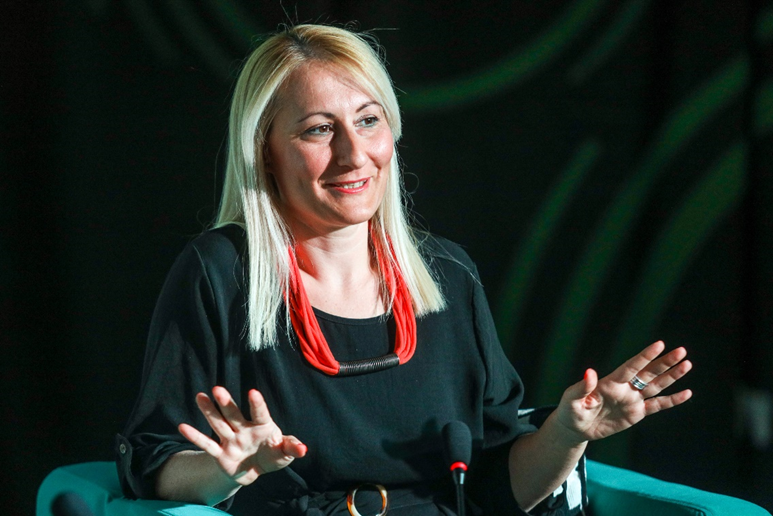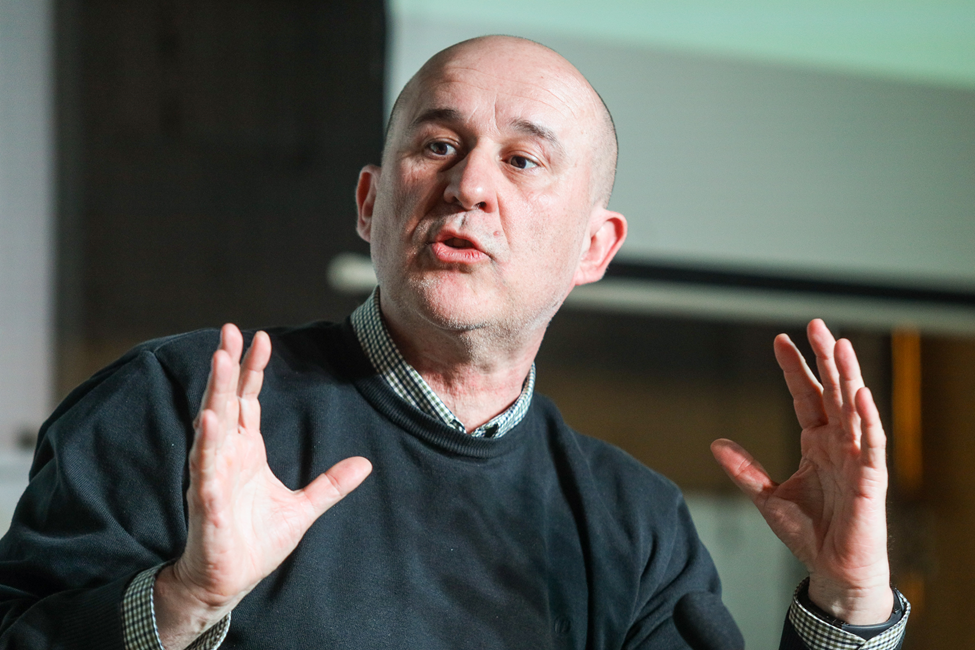One in six Serbian citizens meet the criteria for some of the psychiatric disorders
One in six adult citizens of Serbia met the criteria for some of the most common psychiatric disorders, and 80,000 people more than before experienced moderate depression-induced discomforts during the coronavirus pandemic, as reveals a survey on mental health of the nation at the time of the pandemic, which was presented at the panel session ‘A Cup of Coffee with a Psychologist’. The survey conducted within the project ‘Cov2Soul’, involving experts in the field of public and mental health as well as psychiatric disorders at the Faculty of Medicine in Belgrade, was implemented in partnership with the Departments of Psychology of the Faculty of Philosophy in Belgrade and Novi Sad.
Some of the authors who talked about the results of the survey were Prof. Dr Nađa Marić, associate professor at the Faculty of Medicine in Belgrade and Head of the Scientific Research and Education Service at the Institute of Mental Health, Dr Ljiljana Lazarević, senior research associate at the Institute of Psychology and the Laboratory for Research of Individual Differences at the Faculty of Philosophy in Belgrade, Prof. Dr Goran Knežević, full professor at the Department of Psychology and the Laboratory for Research of Individual Differences at the Faculty of Philosophy in Belgrade. The session was moderated by Dragan Ilić, psychologist and journalist.
In the period from June to October 2021, 1,200 people aged 18-65 were surveyed in 60 municipalities in Serbia. The phenomena such as the psychiatric disorders incidence rate, assessment of depression, stress, loneliness, pandemic-related stressful experiences, conspiracy theories related to coronavirus and physical health, and personal impression of coronavirus were surveyed.
‘It was generally expected that COVID-related stress would bring about a tsunami of mental disorders or now already some huge dramatic changes ‘, Nađa Marić, Head of the Scientific Research and Education Service at the Institute of Mental Health, said at the panel session.

Nađa Marić, Head of the Scientific Research and Education Service at the Institute of Mental Health
When it comes to stressful events since the beginning of the pandemic, about 27 percent of respondents indicated the events caused by suffering related to loved ones, and about 22 percent reported stress related to work or finances. Stress caused by personal problems was reported by almost 13 percent of respondents, and the one caused by relationship problems by every twentieth respondent. The fear of socio-economic effects caused by coronavirus was exceptionally pronounced in the respondents. The so called COVID Stress Syndrome was also noticed. It includes a set of phenomena concerning how much people are afraid of being infected with COVID, whether someone close to them will be infected or maybe something will happen, as well as the fear of being in contact with infected people.
Ljiljana Lazarević, senior research associate at the Institute of Psychology, said that the study revealed that women, retired persons, people with psychiatric disease medical history before the coronavirus and those who were in isolation due to COVID infection were at a slightly higher risk of experiencing COVID Stress Syndrome. The degree of depression at the time of the pandemic was almost twice as high compared to the results of the last survey on this topic conducted in 2013.

Ljiljana Lazarević, senior research associate at the Institute of Psychology
‘An increase in depressive symptomatology is noticeable. When it comes to moderate symptoms, the increase from 2.1 percent in 2013 to 4.1 percent in 2021 was recorded, meaning that twice as many people experienced depressive symptoms of the moderate type’, Goran Knežević, professor of the Faculty of Phylosophy in Belgrade, pointed out.
He said that the survey on the same topic was conducted again in February this year, and that the level of depression was reduced again to 2.2 percent.

Goran Knežević, professor of the Faculty of Phylosophy in Belgrade
When asked how people cope with stress and psychological problems and whether they seek help, Nađa Marić said that 0.3 percent of people in Serbia needed to be treated for a disorder and that one in six adults met the criteria for one of the 12 most common psychiatric disorders, making the score of 700,000 adults.
It has been stated at the panel session that the psychiatric disorders incidence rates in Serbia are equal to those in Norway where seven percent of the total healthcare budget is earmarked for mental health protection. About 1,000 psychiatrists take care of the mental health of adults there, together with 500 resident doctors and about 1,500 clinical psychologists. In addition, young people are assisted by psychiatrists and clinical psychologists specializing in children and youth.
Experts pointed out that there were no data on the amount spent on mental health in Serbia from the healthcare budget, and as far as specialists and clinical psychologists are concerned, according to indicators, that number is 10 times lower than in Norway. The survey revealed that in Serbia, as in other Western Balkan countries, just over half of the population agrees to some extent with pandemic conspiracy theories, while slightly lower number rejects the conspiracy theories altogether. At the time of the survey, almost half of the population had been vaccinated with at least one dose of the vaccine, and they were less likely to accept conspiracy theories.
‘A Cup of Coffee with a Psychologist’ project has been implemented by Hemofarm Foundation for the third year in a row in partnership with the Institute of Psychology of the Faculty of Philosophy in Belgrade and Art Commune Dorćol Platz.